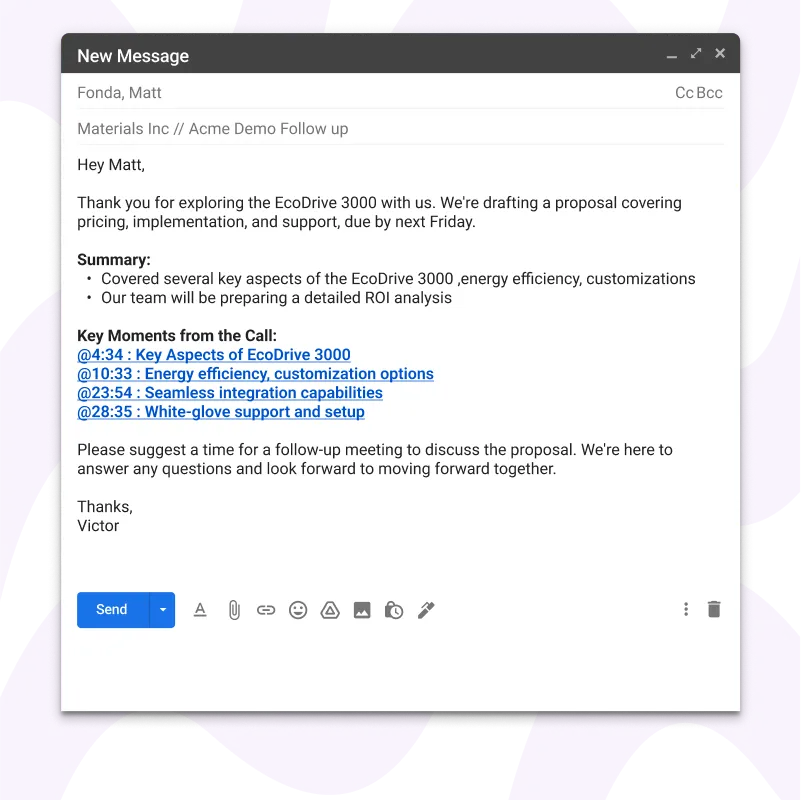Why Rafiki
Pricing


Pricing
Solutions

RevOps Leaders
Synchronize revenue generating functions

SDR Leaders
Get your team aligned and Coach your Reps 3x faster at scale

Sales Leaders
Unlock pipeline truth, drive confident forecasts

In today's highly competitive business landscape, sales teams are under immense pressure to perform and drive growth. The effectiveness of a sales team can significantly impact a company's revenue, customer retention, and overall business success. To navigate this challenging environment, many businesses are turning to sales enablement tools. These tools are designed to equip sales teams with the necessary resources, insights, and training to enhance their performance and productivity.
Sales enablement has become a critical component of modern sales strategies. According to HubSpot, 61% of organizations with a dedicated sales enablement function achieve their revenue targets, compared to 50% of those without one . This statistic highlights the tangible benefits that sales enablement can bring to an organization.
Furthermore, Forrester reports that businesses leveraging sales enablement tools experience a 20% increase in sales productivity on average . This productivity boost is often attributed to the automation of repetitive tasks, better alignment between sales and marketing teams, and data-driven decision-making capabilities provided by these tools.
Sales enablement tools are not just a trend but a necessity for businesses aiming to thrive in the competitive market. By equipping sales teams with the right tools and resources, companies can achieve greater productivity, better customer experiences, and sustainable business growth.
Sales enablement tools are technologies and resources designed to enhance the efficiency and effectiveness of sales teams. These tools provide sales representatives with the necessary information, content, and training to engage potential buyers more effectively and close deals faster. The primary goal of sales enablement is to ensure that sales teams have easy access to the right resources at the right time. This enables them to deliver a more personalized and compelling sales experience.
Sales enablement involves equipping sales teams with tools and content that help them sell more effectively. This includes providing them with training, content, and automation tools that streamline their workflow and enhance their productivity.
CRM systems are essential for managing interactions with current and potential customers. They provide a centralized database where sales teams can track customer interactions, manage leads, and analyze customer data to improve sales strategies. Popular CRM systems include Salesforce, HubSpot CRM, and Microsoft Dynamics 365.
These tools help sales teams manage and distribute sales content, such as brochures, case studies, and presentations. Content management tools ensure that sales representatives have access to up-to-date and relevant content that can be easily shared with prospects. Examples include Seismic, Highspot, and Showpad.
Continuous training is crucial for keeping sales teams up-to-date with the latest sales techniques and product knowledge. Sales training platforms offer on-demand training modules, certifications, and learning paths that help sales representatives improve their skills. Notable platforms include SalesHood, MindTickle, and Brainshark.
Analytics tools provide insights into sales performance, customer behavior, and market trends. These tools help sales teams make data-driven decisions and optimize their sales strategies. Analytics tools can track key performance indicators (KPIs), forecast sales, and identify areas for improvement. Examples include Rafiki, Tableau, Clari, and InsightSquared.
Sales engagement platforms facilitate communication and interaction between sales teams and prospects. These tools automate outreach, track engagement, and provide insights into prospect behavior. Examples include Outreach, SalesLoft, and Yesware.
These tools streamline the process of creating and managing sales proposals and quotes. They ensure consistency and accuracy in pricing and terms. This makes it easier for sales teams to close deals. Examples include PandaDoc, Proposify, and Qwilr.
By leveraging these various types of sales enablement tools, businesses can empower their sales teams to work more efficiently and effectively, ultimately driving better sales outcomes and fostering business growth.
Sales enablement tools automate routine tasks such as follow-up emails, CRM data entry, and call summaries. This allows sales representatives to focus on high-value activities like building relationships and closing deals.

Rafiki's Smart CRM Sync feature automates the input of meeting notes and call summaries directly into your CRM, ensuring that all data is accurate and up-to-date. Additionally, Rafiki's Smart Follow-Up capabilities automatically generate follow-up emails, saving time and reducing the risk of missed opportunities.
Consistent Messaging and Branding Sales enablement tools provide a centralized repository for all marketing and sales materials. This ensures sales teams are always using the latest content and adhering to the company's messaging guidelines.
Better Collaboration These tools enhance collaboration by allowing marketing to share updated content. Sales teams can then provide feedback on what works best, fostering a more cohesive strategy.
Rafiki enables seamless collaboration between sales and marketing by capturing detailed customer interactions and feedback, which marketing teams can use to refine their content and strategies.
Insights from Sales Analytics Sales enablement tools offer powerful analytics that provide insights into sales performance and customer behavior, helping teams make informed decisions and optimize their strategies.
Real-Time Data Tracking and Reporting These tools track key metrics in real-time, giving sales leaders the information they need to adjust strategies and ensure teams are on track to meet their goals.
How Rafiki Helps Rafiki's analytics provide actionable insights into sales activities and customer interactions, allowing sales leaders to make data-driven decisions. Real-time data tracking and reporting ensure that sales teams are always informed and can act quickly on new opportunities.
By leveraging Rafiki and other sales enablement tools, businesses can enhance productivity, improve alignment between sales and marketing, and make informed decisions that drive growth.
Shortened Sales Cycles and Higher Conversion Rates Sales enablement tools streamline processes and automate repetitive tasks, reducing the time needed to move prospects through the pipeline and increasing conversion rates. By automating follow-ups and data entry, Rafiki helps sales teams close deals faster and more efficiently.
Personalized Sales Interactions and Improved Customer Satisfaction Sales enablement tools provide insights into customer behavior, allowing for personalized interactions that build stronger relationships and improve satisfaction. Rafiki captures detailed meeting notes and customer interactions, enabling personalized follow-ups that enhance customer retention.
Adapting to Market Changes and Supporting Business Expansion Sales enablement tools help businesses quickly adapt to market changes and support growth by scaling with increasing sales activities. Rafiki integrates seamlessly with CRM systems. This provides real-time analytics and automated features that ensure efficient and effective sales processes as the business expands.
By leveraging Rafiki, businesses can achieve increased revenue, enhanced customer experiences, and scalable growth.
Sales enablement tools are essential for businesses looking to boost their sales efficiency, improve customer experiences, and scale effectively. By automating routine tasks, providing data-driven insights, and facilitating personalized interactions, these tools empower sales teams to perform at their best.
Rafiki stands out in this landscape by offering advanced features like automated follow-ups, smart CRM sync, and detailed analytics. These capabilities not only streamline sales processes but also enhance the overall effectiveness of sales teams, driving higher conversion rates and greater customer satisfaction.
Sales Enablement Done Right
Investing in sales enablement tools like Rafiki can significantly impact your business growth, helping you stay competitive and responsive to market changes.